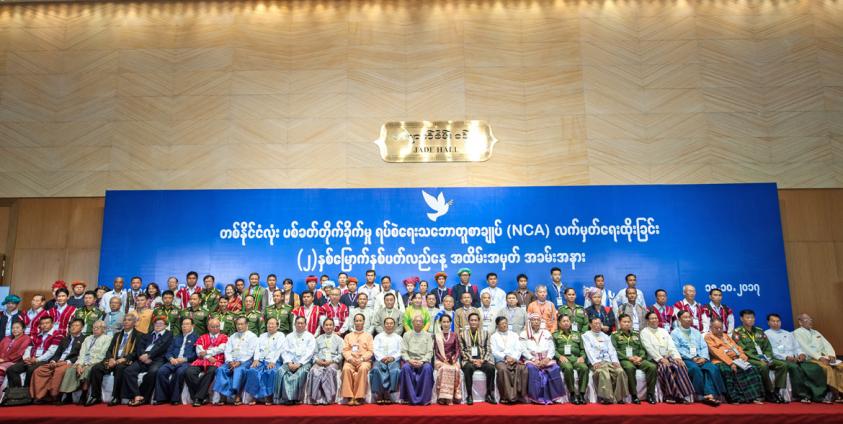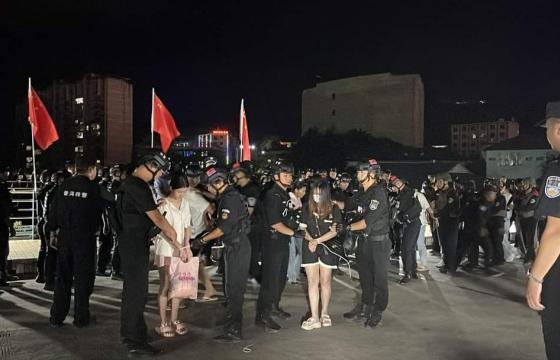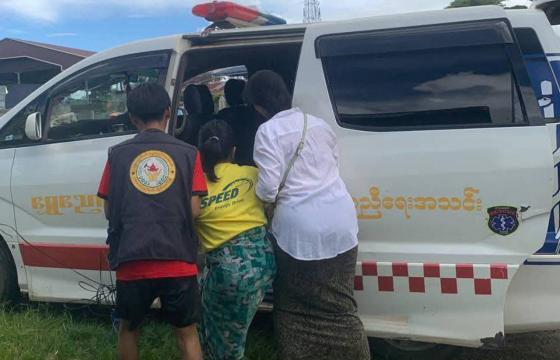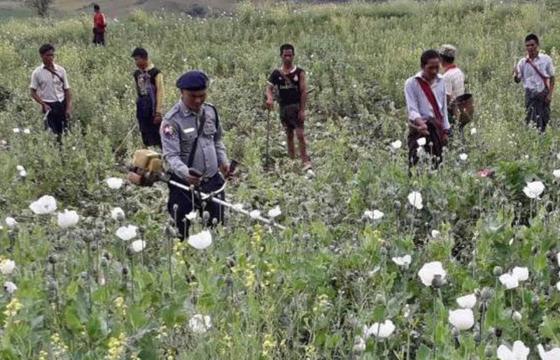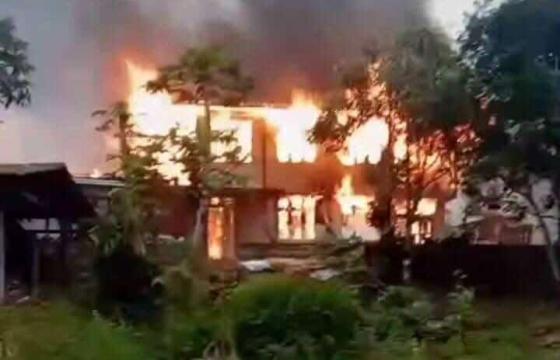In the second in a two-part interview with RCSS/SSA Secretary (2) Col Sai Nguen, SHAN discusses Burma’s various ceasefires.
In this interview with the Restoration Council of Shan State/Shan State Army’s (RCSS/SSA) Secretary (2) Col Sai Nguen, SHAN discusses the Burma Army’s four-month unilateral ceasefire in the country’s North and East, as well as the RCSS’s views on the Nationwide Ceasefire Agreement (NCA), to which it is a signatory.
Some political analysts have described the Tatmadaw’s declaration of a four-month unilateral ceasefire as the military taking a leading role in the peace process. What is your opinion on this?
Even though the NLD [National League for Democracy] government is leading the peace process, the government has to agree with the Burma Army. Although the government held the third round of the 21st Century Panglong Peace Conference in 2018, they couldn’t satisfy all the stakeholders. The basic principles of federalism were not discussed in the conference. Therefore, the situation surrounding the peace process has been getting worse. It is facing a deadlock around many issues. Even though there were summit meetings between the government and NCA signatory EAOs [ethnic armed organizations], these deadlocked issues could not be resolved and it caused more complications. A consequence is that mutual trust is being lost. Until December [of last year], the peace process wasn’t moving forward. In my opinion, in this situation, the Burma Army took the initiative by declaring a four-month unilateral ceasefire in five military command regions.
Do you see any development in the peace process following the Burma Army’s unilateral ceasefire? We have learned that the Burma Army has formed the “Tatmadaw Negotiation Team” for negotiation with EAOs.
The EAOs and the Tatmadaw Negotiation Team haven’t had any negotiation meetings as of yet. Currently, EAOs and the PC [government peace commission] have had series of informal meetings. According to the Tatmadaw’s unilateral ceasefire announcement, EAOs must discuss issues concerning the ceasefire and peace process with the NRPC [National Reconciliation and Peace Center], and then can continue their negotiations with the Tatmadaw Negotiation Team. We have to hold meetings step-by-step. According to our sources, the EAOs and PC and NRPC will have an informal meeting in February. Military representatives are already participating in the PC and NRPC. In my opinion, the desire and the opinions of the Tatmadaw are already present in the dialogue meetings. I do believe that the Tatmadaw Negotiation Team and the EAOs will have a meeting soon.
Most EAOs did not appreciate the Tatmadaw’s warning statement released on January 25, demanding that these groups withdraw to their headquarters. What are your thoughts on this?
Most EAOs didn’t like it. EAOs are trying to solve this issue in their own way. For us, we talked about it with the PC. We told them that they should not do things like this. It could damage the efforts put into and the momentum of negotiation meetings.
The Tatmadaw’s four-month unilateral ceasefire period has already halfway finished. What is the RCSS going to do with the remaining time?
We can clearly see that we have misunderstandings and deadlock issues in the peace process. Therefore, we need to re-discuss our bilateral agreements such as state and Union level ceasefire agreement. We need to make them clear. It’s because we have different opinions, different understandings of the agreements. To solve this problem, we will have to hold discussions with the Tatmadaw first. Then we will hold discussions with the government. Regarding the peace process, we are going to seek common ground with our ethnic brother EAOs.
It has already been more than three years since the NCA was signed. Many people say that there has been no achievement in implementing it. There are rumors that the RCSS is preparing to walk out on the NCA. What are your comments on this?
The RCSS is an NCA signatory armed organization. We have a commitment to follow and practice the principles of the NCA. We will try our best to fulfill the implementation of the NCA accord. We have a true commitment to the NCA.
The principles of building a federal Union and amending the 2008 Constitution are already stated in the NCA. We will continue to walk on the NCA path. We will have obstacles and difficulties as we are walking on our path to achieve our goal, but we have to seek ways to overcome those obstacles. We will never walk out on the NCA.
This interview has been lightly edited for clarity and brevity.


